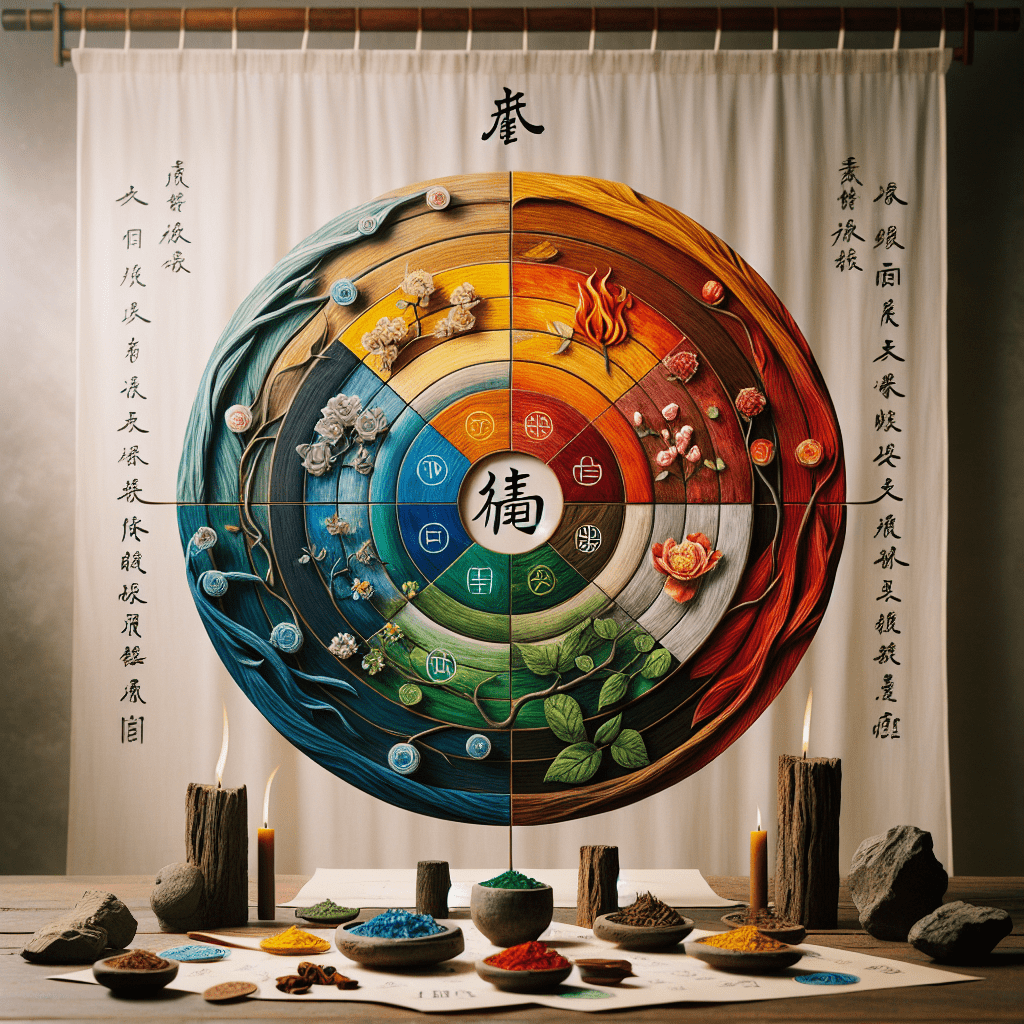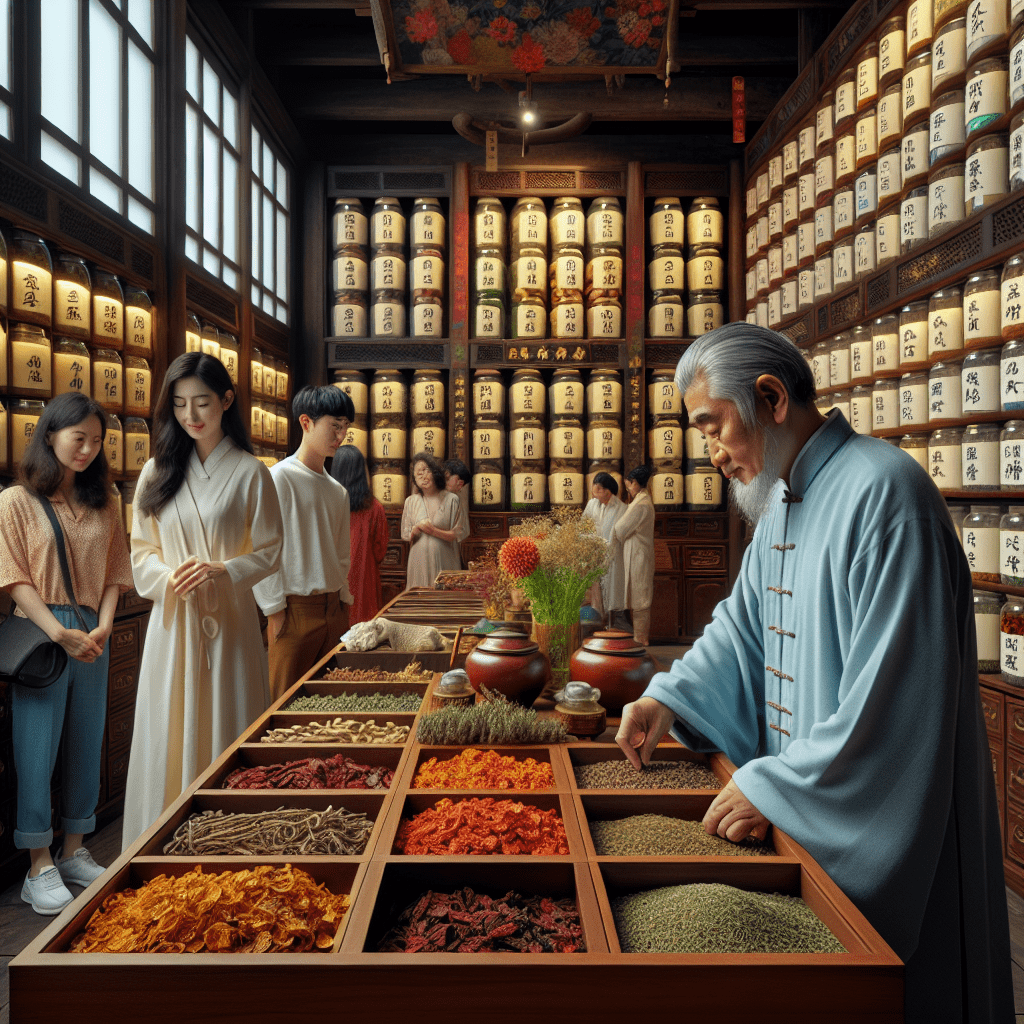In a world that’s constantly chasing the next health trend, there’s something profoundly appealing about turning to wisdom that has withstood the test of millennia. Traditional Chinese Medicine (TCM) isn’t just having a moment—it’s experiencing a global renaissance as more people discover its holistic approach to wellness that treats the entire person, not just isolated symptoms.
The numbers speak for themselves: TCM has now spread to an impressive 196 countries and regions worldwide, with more than one-third of the global population having received TCM treatment at some point. In China alone, TCM department visits surpassed 1.6 billion in 2024, showing a remarkable upward trend that reflects growing trust in these ancient healing arts.
But what’s driving this surge in popularity? As we increasingly recognize the limitations of treating symptoms in isolation, TCM’s integrated approach to mind-body wellness feels refreshingly complete. If you’ve been curious about diving deeper into this ancient healing tradition, there’s never been a better time to pursue a Traditional Chinese Medicine course that aligns with your wellness journey.
Understanding the Foundations of Traditional Chinese Medicine
At its core, Traditional Chinese Medicine operates on principles quite different from Western medical approaches. Rather than focusing solely on eliminating disease, TCM seeks to restore harmony within the body’s systems and between the person and their environment. This fundamental difference makes TCM courses particularly enlightening for those accustomed to conventional healthcare perspectives.
The concept of qi (pronounced “chee”)—the vital energy that flows through the body along specific pathways called meridians—forms the backbone of TCM understanding. When qi flows smoothly, health flourishes; when it stagnates or becomes imbalanced, illness can take hold. Learning to identify and address these energy patterns is a cornerstone of any comprehensive Traditional Chinese Medicine course.
Equally important is the theory of yin and yang—complementary opposite forces that must remain in balance for optimal health. This concept, along with the Five Elements theory (Wood, Fire, Earth, Metal, and Water) that connects our internal systems to the natural world, provides a framework for understanding how everything interconnects.
Key practices you’ll encounter in a Traditional Chinese Medicine course include:
– Acupuncture: The strategic placement of thin needles to regulate qi flow
- Herbal Medicine: Complex formulations of natural substances tailored to individual constitutions
- Tui Na: Therapeutic massage techniques that address both physical and energetic blockages
- Cupping: The application of suction to release tension and promote circulation
- Dietary Therapy: Food recommendations based on energetic properties rather than just nutritional content
- Qigong and Tai Chi: Movement practices that cultivate and direct qi
These modalities don’t exist in isolation but work together synergistically, which is why a well-designed Traditional Chinese Medicine course will address how they complement one another within an integrated treatment approach.
Exploring Learning Pathways in Traditional Chinese Medicine
The good news for aspiring TCM practitioners or enthusiasts is that learning opportunities have never been more diverse or accessible. Whether you prefer immersive in-person training or the flexibility of online study, there’s a Traditional Chinese Medicine course suited to your lifestyle and learning preferences.
Comprehensive Degree Programs
For those seeking professional credentials, accredited institutions like Emperor’s College in Los Angeles offer master’s degree programs that provide the rigorous education needed for licensure. These programs typically include:
– Extensive theoretical foundations
- Supervised clinical practice
- Comprehensive herbal medicine training
- Biomedical sciences integration
- Business and ethical practice guidance
Students who complete these programs graduate prepared to sit for licensing exams and establish professional practices.
Flexible Online Learning Options
The digital revolution has democratized access to TCM education. High-quality online platforms now offer everything from introductory courses to specialized continuing education for practitioners. These self-paced Traditional Chinese Medicine course options allow students to learn without relocating or disrupting their current careers.
Many online programs utilize innovative teaching methods including:
– Video demonstrations of techniques
- Interactive case studies
- Virtual herb identification exercises
- Community forums for peer discussion
- Live Q&A sessions with experienced practitioners
One particularly exciting development is the integration of artificial intelligence into TCM education, allowing for personalized learning pathways that adapt to individual progress and areas of interest.
Hybrid Learning Models
Recognizing that some aspects of TCM require hands-on instruction while others translate well to digital formats, many institutions now offer hybrid Traditional Chinese Medicine course options. These programs might include:
– Online theoretical modules
- Weekend or intensive in-person skill-building workshops
- Virtual classrooms for interactive learning
- Supervised clinical training arranged near the student’s location
This approach combines the best of both worlds—flexibility and accessibility with essential hands-on experience.
The Benefits of Pursuing TCM Education
Investing time in a Traditional Chinese Medicine course yields rewards that extend far beyond the acquisition of new knowledge. Students often report transformative shifts in how they understand health, healing, and the interconnectedness of body systems.
Personal Health Transformation
Many who study TCM find themselves naturally implementing its wisdom in their own lives. Students often report:
– Greater awareness of how lifestyle choices affect their energy
- Improved understanding of their unique constitutional tendencies
- Enhanced ability to maintain balance through seasonal changes
- Practical skills for addressing minor health concerns naturally
- A more intuitive relationship with their body’s signals
As one TCM student shared, “Learning about the energetics of food completely changed my relationship with eating. I now understand why certain foods leave me feeling depleted while others energize me—it’s not just about calories or nutrients.”
Expanding Professional Horizons
For healthcare professionals, adding TCM knowledge creates valuable versatility. Physicians who incorporate TCM understanding can offer more integrative care approaches and better address chronic conditions that might not respond well to conventional treatments alone. Studies have shown that specialized physician training in TCM improves patient care and optimizes healthcare utilization.
Even for those not in healthcare, TCM education opens doors to emerging wellness fields:
– Corporate wellness consulting
- Health coaching with an Eastern perspective
- Specialized writing and education
- Product development for natural health companies
- Community health advocacy
Bridging Ancient Wisdom and Modern Science
Perhaps most exciting is how Traditional Chinese Medicine course work helps bridge ancient wisdom with contemporary research. Modern studies increasingly validate mechanisms behind TCM practices, creating a fascinating intersection of traditional knowledge and scientific validation.
For example, research has demonstrated acupuncture’s effectiveness for pain management through documented neurological pathways, while studies on Chinese herbs have identified specific compounds with measurable pharmacological effects.
Choosing the Right Traditional Chinese Medicine Course
With numerous options available, selecting the right educational path requires thoughtful consideration. Here are key factors to evaluate when choosing a Traditional Chinese Medicine course:
Accreditation and Recognition
For professional training, ensure the program meets recognized standards in your region. In the United States, look for programs accredited by the Accreditation Commission for Acupuncture and Oriental Medicine (ACAOM). International students should verify that credentials will be recognized in their home countries.
Curriculum Balance
The most effective TCM education balances several components:
– Solid theoretical foundations
- Practical clinical skills
- Contemporary research integration
- Cultural context and classical text study
- Business and professional development
Look for a Traditional Chinese Medicine course that addresses all these areas rather than overemphasizing just one aspect.
Learning Support and Resources
Quality programs provide robust support systems including:
– Accessible instructors with clinical experience
- Comprehensive learning materials
- Herb samples or identification resources
- Practice partners for hands-on techniques
- Clinical mentorship opportunities
For online programs, examine the learning platform’s user-friendliness and the availability of instructor interaction.
Alignment with Personal Goals
Clarify what you hope to achieve through TCM education. Are you seeking:
– Professional certification for clinical practice?
- Supplementary knowledge for an existing healthcare career?
- Personal wellness understanding?
- Cultural appreciation and philosophical exploration?
Your specific goals should guide which Traditional Chinese Medicine course best serves your needs.
Graduate Success Indicators
Research the track record of programs you’re considering:
– Licensing exam pass rates
- Graduate employment statistics
- Student satisfaction surveys
- Alumni accomplishments
- Continuing education opportunities
These metrics provide valuable insights into program quality and real-world relevance.
Embracing the Integration of East and West
As you explore Traditional Chinese Medicine course options, consider how this ancient wisdom complements rather than competes with modern approaches. The most promising developments in healthcare occur at the intersection of diverse healing traditions, where respectful integration creates something greater than the sum of its parts.
This philosophy of integration perfectly aligns with what we at HerbalsZen strive to achieve through our EASTCHI AI platform. By combining the time-tested wisdom of Eastern medicine with cutting-edge artificial intelligence, we’re creating personalized wellness recommendations that honor traditional knowledge while leveraging modern technology.
Just as a comprehensive Traditional Chinese Medicine course teaches students to see patterns and connections between seemingly separate symptoms, our EASTCHI AI analyzes constitutional types through Five Element Theory and seasonal influences to develop holistic recommendations. This approach recognizes that true wellness comes from balance across all aspects of life—nutrition, movement, rest, emotional well-being, and environmental harmony.
Whether you choose to pursue formal education through a Traditional Chinese Medicine course or simply incorporate elements of TCM wisdom into your daily life, the journey toward understanding these ancient principles offers profound rewards. In a world of quick fixes and fragmented healthcare, TCM’s integrated perspective provides a refreshing alternative—one that sees the whole person in the context of their environment and seeks to restore harmony rather than merely eliminate symptoms.
The growing global embrace of TCM reflects our collective hunger for more complete approaches to health. By exploring these ancient traditions through modern learning pathways, you join a worldwide community rediscovering that sometimes the most innovative solutions are those that have been refined across thousands of years of human experience.




